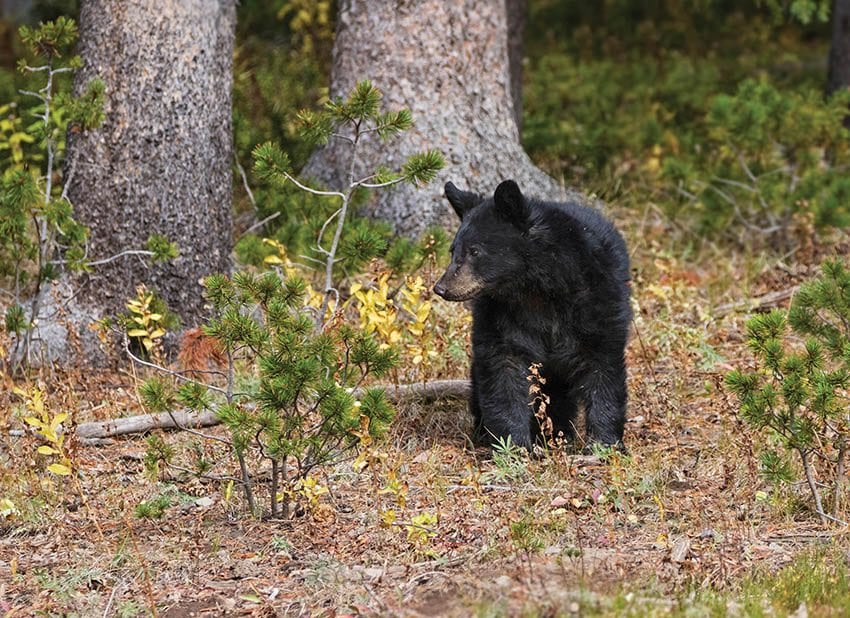Summer bad news for bears
DEC fielded an unusually high number of complaints about run-ins with bruins this year.
By MIKE LYNCH
Bear encounters in New York's Adirnondacks backcountry and in residential areas were much more common than usual this summer. Jim Stickles, a wildlife biologist with the state Department of Environmental Conservation, said there were about 150 bear complaints in DEC’s Region 5—which comprises about two-thirds of the Park—as of early September. As a result, the department euthanized a half-dozen bears in the region. There were only ninety complaints about bears in each of the prior two years.
In the backcountry, bears have stolen food from campsites and approached hikers on the trail; in residential areas, they have knocked over bird feeders and raided garbage cans. DEC has received complaints in Saranac Lake, Raquette Lake, Tupper Lake, Chestertown, Keene, Keene Valley, Speculator, Long Lake, Inlet, and Old Forge.
Scientists cite this summer’s hot, dry weather as a big reason for the high number of bear incidents. As a result of the weather, the bear’s natural food sources, such as berries, were in short supply. Also, the lack of rain drew more visitors to the Adirondacks, meaning more people were in bear habitat.

“We started off the year really dry. We didn’t have the snowmelt we normally do, and the berry crops, they just weren’t there this summer, at least not that I noticed, so there just wasn’t available food,” Stickles said.
Bears seldom attack people
Despite all of the black-bear incidents this year, including many close encounters in the woods and in residential areas, there were no reported injuries to people.
Historically, few people have been injured by bears in the Adirondacks, although many have come extremely close to them.
In 2015, a hiker got tangled up with a black bear in the southern Adirondacks and suffered life-threatening wounds but survived after a trip to the hospital. The hiker had been trying to save his dog from the bear.
A few years before that, a woman used a pocketknife to fend off a bear that she says stalked and ultimately approached her on the Northville-Placid Trail. She was not hurt.
The only known fatal bear attack in New York State occurred in 2002 when a young male bear killed an infant in the Catskills.
However, black bears have killed people in Algonquin Park in Canada, Glacier National Park in Montana, and other places. Fatal attacks are rare, but they do occur.
Some scientists says it’s not in the DNA of black bears to go after humans. They are omnivores that eat, among other things, skunk cabbage in the spring, berries in the summer, and tree mast in the fall. When they eat meat, it might be a small deer or even a bear cub.
When bears in the Adirondacks do injure humans, it’s usually because they are protecting their cubs or have come in contact with people while seeking food at a campsite or home.
“They are afraid of humans, and they aren’t really a predator,” said Michale Glennon, a Wildlife Conservation Society biologist. “They are an opportunistic omnivore, so if they are attacking a human, it’s for a cause that I would consider an anomaly: either fear because someone has gotten between them and their cubs or made them feel scared for whatever reason.”
“Generally, they are not accustomed to being around humans and don’t want to be around humans,” Glennon continued. “They are opportunistic and will find food sources that humans leave, and we are in close contact with them under those types of circumstances; the chances for something bad happening are, of course, higher.”
----------------------------------------------------------


No comments:
Post a Comment